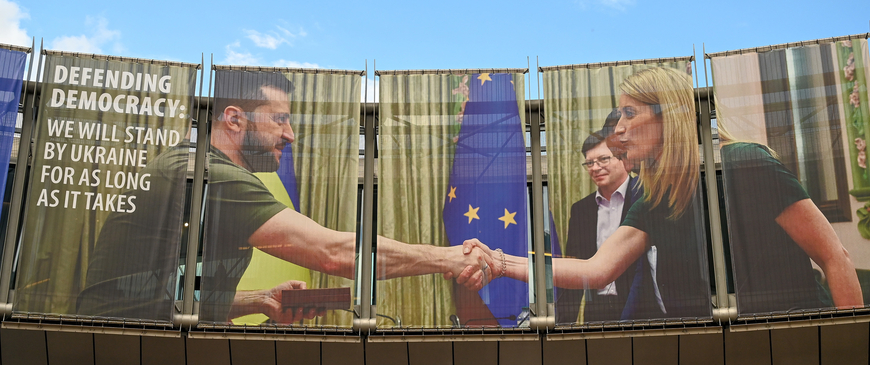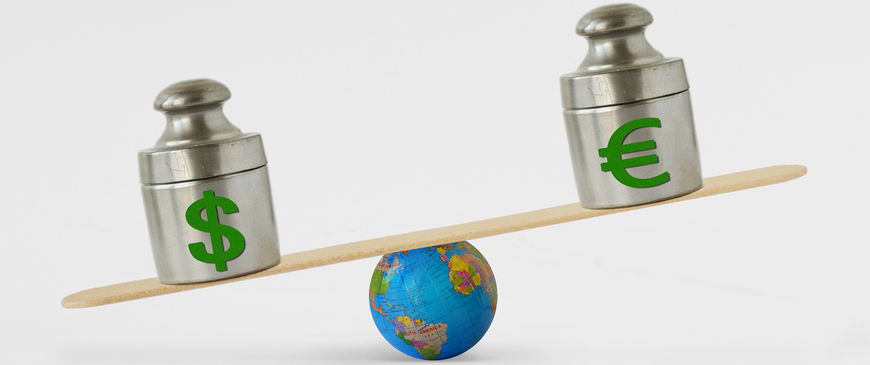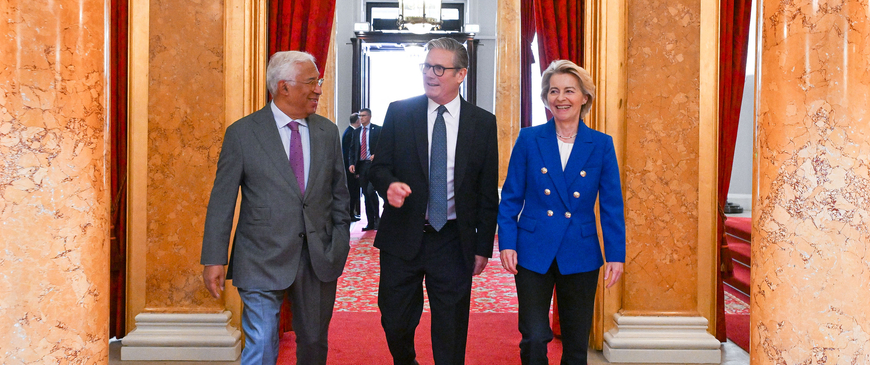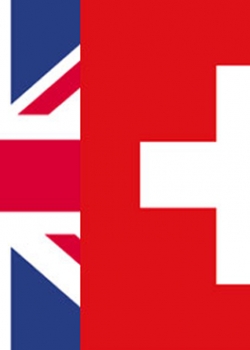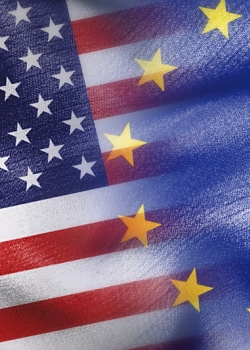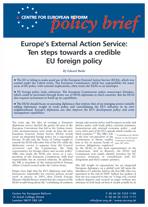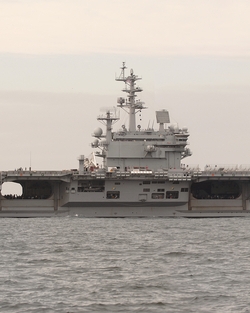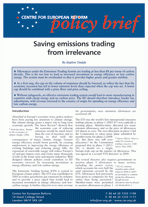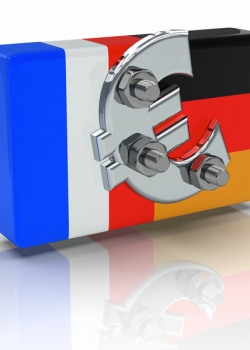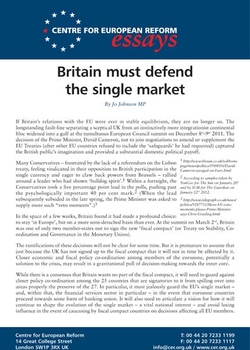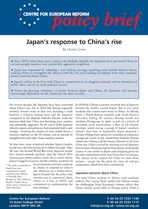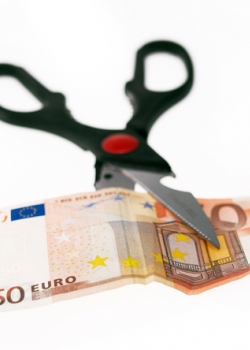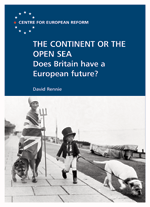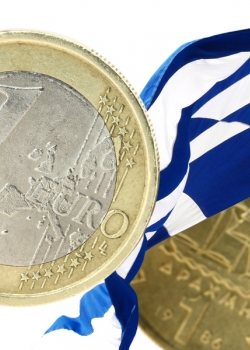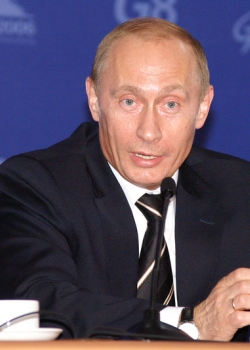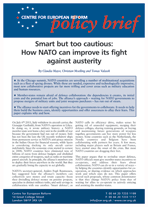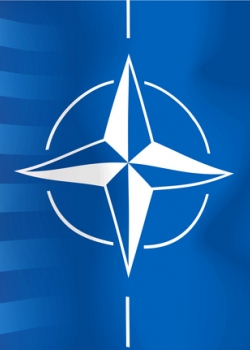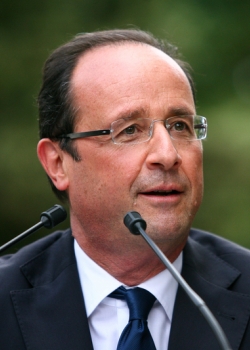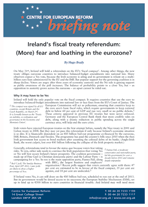Research
Britain should not go Swiss
10 July 2012
Some British eurosceptics want the UK to be like Norway and Switzerland: semi-detached from the EU. They should be careful what they wish for.
Are Europeans a better transatlantic security partner than meets the eye?
06 July 2012
Europeans are less willing to use military force than their US allies. But they are still making significant contributions to global stability.
Europe's External Action Service: Ten steps towards a credible EU foreign policy
04 July 2012
The EU's new diplomatic service has been widely criticised. Although the EEAS has achieved more than many acknowledge, it can still do a lot better.
The implications of military spending cuts for NATO's largest members
01 July 2012
Brookings
There have long been debates about the sustainability of the transatlantic alliance and accusations amongst allies of unequal contributions to burden-sharing. But since countries on both sides of the Atlantic have begun introducing new – and often major – military spending cuts in response to the economic crisis, concerns about...
Saving emissions trading from irrelevance
29 June 2012
The Emissions Trading System must be overhauled. The cap should be lowered, and combined with a price floor and ceiling and border tax adjustments.
Needed: A Franco-German concordat
27 June 2012
The euro needs a Franco-German bargain: Germany must swallow eurobonds and a banking union, while France must let the EU have a say on its budget.
Britain must defend the single market
22 June 2012
A Conservative MP argues that the single market will flounder if the UK is marginalised inside the EU – or if the UK leaves altogether.
Germany's own goal: Why Berlin's sense of invulnerability will be its undoing
22 June 2012
Germany’s strategy for dealing with the euro crisis is maximising, not minimising, risks to the country’s economic and political interests.
The EU must fight corruption and defend the rule of law
14 June 2012
Policy-makers in Brussels worry increasingly about corruption, national mal-administration and the rule of law in the EU. New thinking is needed to address such concerns.
Japan's response to China's rise
13 June 2012
Japan fears China's growing strength and increasingly assertive foreign policy. Japan has responded by strengthening alliances with the US and other maritime powers.
Some sorts of austerity are better than others
01 June 2012
Governments in the eurozone's periphery are making indiscriminate cuts. Reducing spending that does little to support demand and recycling it into investment would help.
The continent or the open sea: Does Britain have a European future?
28 May 2012
The UK has always had a difficult relationship with the EU. Its continued membership of the club can no longer be taken for granted.
Issue 84 - 2012
25 May 2012
- A Greek exit will not be cathartic, Simon Tilford
- Time for France to take the lead on Syria, Edward Burke
- What Putin's return means for the former Soviet republics, Jana Kobzova, Tomas Valasek
A Greek exit will not be cathartic
25 May 2012
How the eurozone handles Greece will determine whether or not the single currency survives – and hence the future of the EU as a whole.
If a Greek exit from the eurozone is mishandled, contagion to the other struggling member-states could be uncontrollable, leading inexorably to the collapse of the euro....
If a Greek exit from the eurozone is mishandled, contagion to the other struggling member-states could be uncontrollable, leading inexorably to the collapse of the euro....
Time for France to take the lead on Syria
25 May 2012
Western policy towards Syria is a mess and needs to be rethought before it is too late. Lebanon is sliding into conflict and jihadist and other extremist groups have increased their presence in both countries.
The Gulf states, with tacit US support, have started arming Islamist militant groups of which they...
The Gulf states, with tacit US support, have started arming Islamist militant groups of which they...
What Putin's return means for the former Soviet republics
25 May 2012
Vladimir Putin's re-election as Russia's president, and his absence from recent summits of the G8 and NATO, indicate a hardening of Russian attitudes towards the West.
What does this imply for Russia's relations with the former Soviet republics in Europe and Central Asia? The EU and NATO have little interest in...
What does this imply for Russia's relations with the former Soviet republics in Europe and Central Asia? The EU and NATO have little interest in...
Smart but too cautious: How NATO can improve its fight against austerity
21 May 2012
European militaries remain wary of collaboration. NATO should give them incentives and address their fears.
NATO ponders austerity and US 'pivot'
18 May 2012
The US sees itself as a Pacific power, and the Europeans are busy plundering their defence budgets. Does NATO have a future?
How Hollande should handle Merkel
14 May 2012
Can François Hollande persuade Angela Merkel to shift the EU's eurozone strategy away from austerity and deficit reduction, and towards growth and employment?
Ireland's fiscal treaty referendum: (More) fear and loathing in the eurozone?
11 May 2012
Ireland votes on the EU’s new fiscal compact on May 31st. Hugo Brady assesses the chances of a Yes and the consequences of a No.

